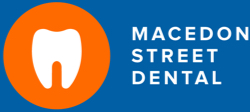Pregnancy and Dental Issues
Pregnancy can lead to dental problems in some women, including gum disease and increased risk of tooth decay. During pregnancy, your increased hormones can affect your body’s response to plaque (the layer of germs on your teeth).
Pregnancy does not automatically damage your teeth. The old wives’ tale that warns a woman to expect a lost tooth for every baby is false. If the mother’s intake of calcium is inadequate during pregnancy, her bones – not her teeth – will provide the calcium her growing baby needs. This calcium loss is quickly made up after breastfeeding is stopped. However, the demands of pregnancy can lead to particular dental problems in some women.
With proper hygiene at home and professional help from your Macedon Street Dentist, your teeth should remain healthy throughout pregnancy.
Dental disease can affect a developing baby
Research has found a link between gum disease in pregnant women and premature birth with low birth weight. Babies who are born prematurely may risk a range of health conditions including cerebral palsy and problems with eyesight and hearing.
Estimates suggest that up to 18 out of every 100 premature births may be triggered by periodontal disease, which is a chronic infection of the gums. Appropriate dental treatment for the expectant mother may reduce the risk of premature birth.
If you are planning on getting pregnant, it may be a good time see your dentist or oral hygienist, to minimise your risk of gum disease.
Pre-pregnancy dental health
You are less likely to have dental problems during pregnancy if you already have good oral hygiene habits. Suggestions include:
- Brush your teeth at least twice daily with fluoridated toothpaste.
- Floss between your teeth.
- Visit your Macedon Street Dentist or oral hygienist regularly.
Tell your dentist if you are pregnant
Your dentist may put off taking x-rays until after the birth of your baby. However, if dental x-rays are unavoidable, the dentist can take precautions to ensure your baby’s safety. If your dental condition requires general anaesthesia or medications, talk to your dentist, doctor or obstetrician for advice. Non-urgent procedures are often performed after the first trimester.
Comments are closed.




